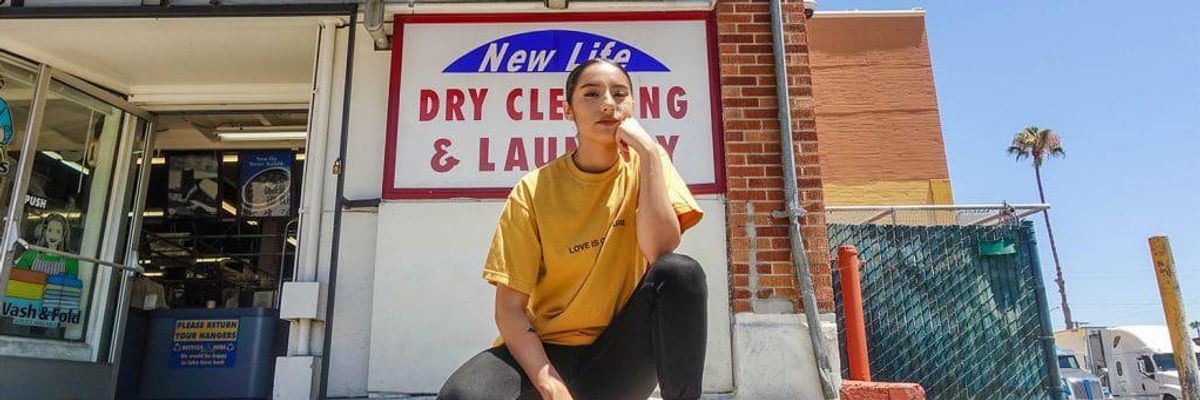
“Salvadoreña? Like the MS-13?”
My eyes roll to the back of my head as I force a plastered smile explaining (again) that yes, they’re a Salvadorian gang but it was actually formed in the United States. And no, my family isn’t involved.
In my nearly 30 years of life, I have seen a slow evolution of how Salvadorian and Central American, which were synonymous with Mexican, grew into its own category. I’ll be the first to admit that growing up I had no idea Afro and Asian Latinos existed, or that not all Latinos are Indigenous because I hadn’t met any. My family consists of mestizos, and the media I consumed portrayed similar or lighter features which I accepted as canon–anything different was uncommon.
I was wrong. Latinos are primarily mixed, which gives us our broad range of features, shades, and cultural identities. Cuba, Puerto Rico, and the Dominican Republic have a strong African influence that is evidenced in the food and music. Peru’s Asian population has left a mark as well, blending cultures and ingredients to create chifa, a cuisine of Peruvian and Chinese ingredients. The Indigenous communities have been around for millennia, with many traditions blending into mainstream Latino culture. Neither of these is less Latino than the other. Each is a piece of Latin America and our identities.
Historically, the United States hasn’t viewed Latinos in a positive light. Despite the contributions and sacrifices made in both world wars, Latinos have been treated as second-class, even when the intentions appear to be genuine. The Bracero Program was meant to prevent labor shortages but resulted in abuse of workers that continues to this day. The Zoot Suit Riots targeted Mexicans, African Americans, and other minorities. It took the 1954 Supreme Court ruling in Hernandez v. State of Texas, which held that the Fourteenth Amendment applied to all racial and ethnic groups facing discrimination, to broaden the scope and determine that civil rights laws included Hispanics and all other non-whites. Discrimination against Latinos–and especially people who are assumed to be Latino based on their appearance–is ongoing (looking at you, SB-1070).
In the media, there’s an interesting juxtaposition of Latinos being portrayed as either sultry lovers or criminals, with over-the-top performances that drive the “feisty” stereotype.
We’ve come a long way from the Old Hollywood depictions showing only what they believed was what a Latino looks like, but Black and Indigenous voices have either been erased completely or fallen to the criminal role. Stories that center the POC struggle shouldn’t be the only narrative point of view because there are so many other beautiful stories waiting to be told.
Social media is the more recent source that has been promoting various Latino voices. Social media platforms allow you to become whoever you want, no matter the niche, which becomes an easy way to educate others. Additionally, with the rising number of Latinos in academia, it’s becoming much easier for kids and young adults to see themselves in a positive light. It’s estimated that by 2025, Hispanic enrollment in higher education will exceed 4.4 million students, which surpasses the growth rate of any other racial or ethnic group. The percentage of Hispanics with STEM degrees rose from 9.8% to 14% between 2009 to 2018 and is only rising.
With hashtags such as #LatinasInSTEM or #Poderosas, and accounts dedicated to elevating Black, Indigenous, and Brown voices it is now much easier to learn about our communities. And with Black and Indigenous voices having been erased for years, creators are diving deep into the oftentimes ugly history of our countries and how we immigrated to the United States and discriminated against our own people, unafraid of having authentic discussions that involve colorism and machismo.
Slowly, educating others in our communities and those outside of it have become possible with the labor done by those committed to breaking the stereotypical barriers. Even as recent as five years ago, if you wanted to educate yourself on Afro-Latino history in Central America you’d come across several hurdles. But with a growing network of Latinos dedicated to unearthing this information it’s just a few clicks away.
Words are powerful. Connecting with others is powerful.
We are not the dirty immigrants, criminals, or spicy Latinas that we’ve seen on our screens for a century. We fit no mold because there truly isn’t one. Not all Latinos speak Spanish, and our features and customs range from country to country. We are now controlling our narratives, and the narratives that the next generation will see.
- Labels 101: Hispanic, Latino, Latinx, and More ›
- My Last Name is Haas, and Yes I'm Latina: The Complexity of Latine Identity - Luz Media ›
- The Struggle is Real: 10 Things Only U.S. Latinas Understand ›
- Latino Trump Supporters Prioritize Immigration Policies - Luz Media ›
- How Different Latino Subgroups View the Current 2024 Election - Luz Media ›
- This Surprising Issue Would Earn the Support of Latino Voters ›









 Promotional image provided by On Point Studios.
Promotional image provided by On Point Studios.  Promotional image provided by On Point Studios.
Promotional image provided by On Point Studios. 
